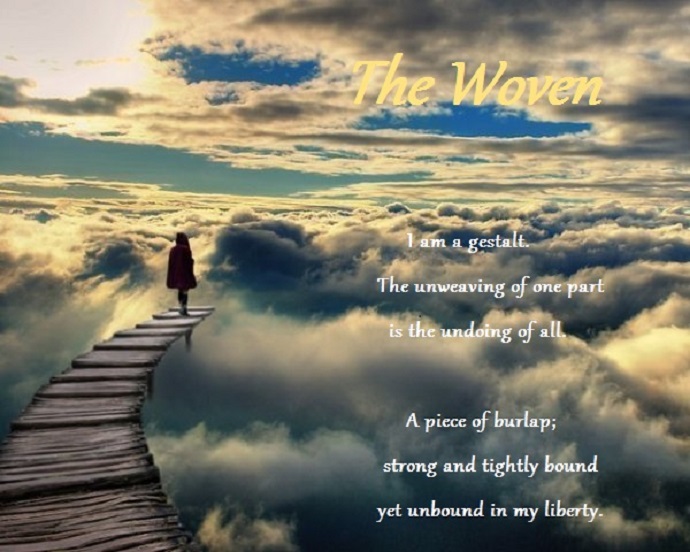What is the meaning of “Christmas”?
What exactly do we celebrate during this holiday season?
Truth be told, it means many different things to many different people. Christmas, Hanukkah, Kwanzaa, Eid ul-Adha, Santa Claus, the list goes on and on. There is also the non-religious and very secular (and commercial) “Christmas”.
During this holiday season I had two interesting conversations with two different people.
My wife and children and I had gone to my sister's to exchange gifts. It wasn't Christmas day because we weren't going to see them on Christmas day. My children were the only children there, and true to being children were excited to open their presents. My sister said to them that Christmas wasn't only about presents. It sounded like the beginning of a speech or a lecture, and in a odd sort of way, I really wish it would have been. Because in the end, the statement was left hanging.
...Christmas isn't just about presents you know...
Okay, so what is Christmas about? Coming from a self-proclaimed agnostic – one who celebrates with a Christmas tree, yet doesn't (or won't) place a star or angel on it - really catches my curiosity.
What is “Christmas” about? The answer is family. “Christmas” is about family. In this example I don't have a problem with that. However - should that be true - then “Christmas” should represent the summation of all the other 364 days of the year.
How strange is it that it was only last Christmas that we sat in her home. I could probably count on one hand how many times we've been together during those other 364 days...
...so on hindsight, I don't really buy that meaning of “Christmas”. It can't really be about family - not in this case.
Christmas Eve, we – the four of us – mommy, daddy, son, and daughter – had our Christmas dinner. We had one guest. A friend of mine – also a member of my small group – an older gentleman, a bachelor and without children. It was not an act of charity because we really enjoy his company. But on the same note, nobody should be alone on Christmas.
After dinner we got into a conversation in which he spoke of what Christmas meant to him. Although a faithful man, basically he said Christmas was really about simply enjoying yourself. It's a celebration so simply enjoy it. Although a Christian, he didn't attach any religion significance to the holiday. After all, Christ wasn't born on December 25th.
It's been 3 days since and I am still thinking about that. The last I can remember hearing was that they believed that Yeshua of Nazareth was born sometime in May or possibly Spring, although I have heard of many other dates. Regardless, the point remains pretty firmly established that He was not born on December 25th, or for that matter anytime within the month of December.
So what is it we celebrate? I remember earlier this month reading a story in the paper of two school teachers who put together a Seasons Holiday Musical performance at their local school who got into a little bit of hot water over changing the lyrics of the song Silver Bells, making it religiously neutral. Strange that is. Included in the musical performances was the song The Candles of Hanukkah to celebrate their multiculturalism.
The obvious problem is multiculturalism at the expense of one cultural tradition, namely Christianity's.
From Centrist Christianity, Tim had written,
“I have absolutely zero problem with celebrating Ramadan, Hanukkah, Kwanzaa, and Christmas all at once. I have no problem with there being equity in the public expression of those holidays. Because let's face it, we haven't been an exclusively "Christian" nation for some time, if ever we truly were. We are a culturally diverse nation and should celebrate that. However, diversity must be acknowledged without suppression. This is where I grow concerned. Many of the parties that wish to see an "equal" recognition of these other holidays would like to do so at the expense of suppressing Christmas; or more importantly, the Christian connotations... Disturbing because it [is] an insidious form of extremism that seeks to eradicate all traces of sacred Christmas meaning.”
I believed this and would have argued in favour of this up until this Christmas. (And I don't mean to pick on Tim, nor pick a fight with him – I respect him very much), however, I don't think I agree wholeheartedly.
The Romans held a festival on December 25 called Dies Natalis Solis Invicti, "the birthday of the unconquered sun."; Sol Invictus. According to the Romans, December 25th was also the Winter Solstice. Later to become Saturnalia. The Early Church “baptized” the holiday and “Christianized” it.
When the Christianization of the Germanic peoples began, missionaries found it convenient to provide a Christian reinterpretation of popular pagan holidays such as Yule and allow the celebrations themselves to go on largely unchanged, versus trying to confront and suppress them. Regardless, on numerous levels there are present numerous pagan traditions, which strongly suggest this to be true. Mistletoe, the Yule-log, and even the Christmas Tree (quite possibly the Yggdrasil, but definitely Pre-Christian).
What is the meaning of Christmas? What is it that we celebrate?
I can't help but wonder if we're inadvertently celebrating the decimation of numerous cultures and traditions, yet – somehow – claim to celebrate cultural diversity.
Maybe Christmas should be eradicated.
Maybe the meaning of Christmas should be an apology.
Maybe the meaning of Christmas should be to extend ourselves to learn from other cultures and other celebrations.
...because the more I think about it, the Christian Christmas seems to have less and less real meaning... it seems to be ringing hallow
“Let's keep Christ in Christmas”
I don't believe Christ ever was in Christmas.
Maybe Frank Costanza's “Festivus for the rest of us” carries more weight and truth.
How sad is that?
I find it heartbreaking.

No comments:
Post a Comment